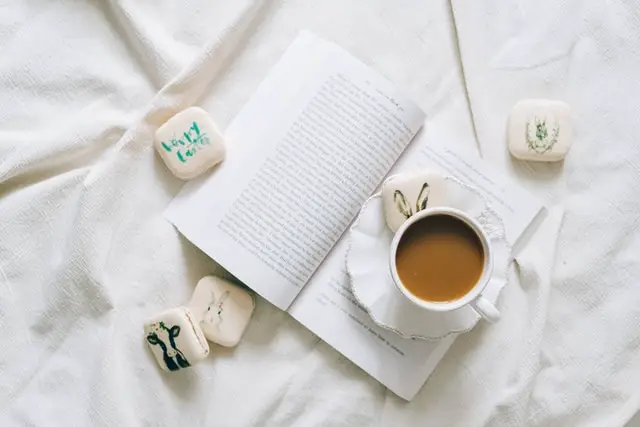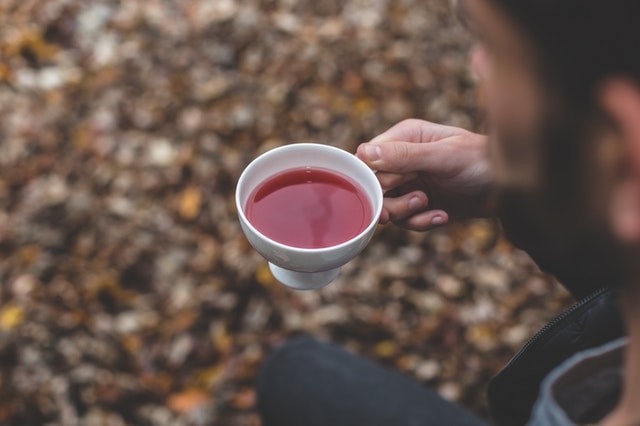
All true teas contain caffeine, but the content can vary quite a bit. Herbal teas don’t contain any caffeine.
My clients fall into two categories. Either they are looking to caffeinate in healthier ways or they are trying to steer clear of caffeine completely. This is why I created this comprehensive post of caffeine in tea.
In this post, I will break down the various caffeine contents, show why this caffeine may be healthy, and help you to moderate your intake. Let’s begin!
Contents
Yes, tea does naturally have caffeine in it. Understand, all true teas are derived from a plant known as camellia sinensis. All camellia sinensis leaves naturally contain caffeine. As such, so does any tea that is made and consumed from these leaves.
In some cases, the caffeine is removed from the tea leaves to create decaffeinated tea. However, it should be noted that even decaf tea contains minute portions of caffeine. Due to this, no true tea is really free of caffeine.
The only difference between traditional and organic true teas is the manner in which they are grown. Organic true teas are simply those that are grown in a pesticide-free environment. Apart from this, though, they are virtually identical to traditional true teas in all other ways.
This means that organic tea has caffeine as well. Once again, organic decaf tea does exist, but this blend will ultimately contain some caffeine.

As you know, there are different kinds of true teas. These are white tea, green tea, black tea, and oolong tea. Now, conventional wisdom dictated that the caffeine content differs from one tea to another. For the longest time, people have followed the guidelines before when determining how much caffeine was in each cup of tea:
Recently, though, it has been proven that it can be quite difficult to figure out just how much caffeine is in a particular batch of tea. This is due to the fact that a number of factors can determine the resulting caffeine content.
Thus, in some cases, green tea may have as much caffeine as black tea. And, the same kind of tea may have incredibly different caffeine contents across the board.
Related Reading
Fact or Fiction: Does White Tea Have Caffeine?
Despite being labeled as tea, herbal tea isn't actually a tea. Or rather, it doesn’t fall into the same category as true teas. This is because herbal teas are derived from the flowers, leaves, stems, and roots of any plant that isn't camellia sinensis.
This means that herbal tea doesn’t contain any caffeine. In fact, it is the only real non-caffeinated tea that you can drink.
It has been an accepted fact that coffee contains more caffeine than tea. However, is this actually the case? Well, not really.
First off, the actual content of tea leaves and coffee beans can vary quite a bit from one batch to another. So, it can be difficult to get an idea of the average amount of caffeine in either of these substances.
Nevertheless, tea leaves tend to have around 3.5% of caffeine, while coffee beans have been 1.1 and 2.2%. The reason that coffee traditionally has more caffeine is the manner in which the beans are broken down.
When you brew coffee, you use hotter water, extracting more of the caffeine. As you can tell from the previous sections, though, it is quite possible to brew a cup of tea that is equivalent or more in caffeine content than coffee!
While caffeine was largely seen as being a negative thing, recent research has shown that it can actually be rather beneficial to your health. Here are some of the health advantages associated with caffeine:
If you have ever felt mentally alert after a few cups of tea, then you should be thanking caffeine. Studies have shown that caffeine can help enhance your memory for up to 24 hours after initial consumption. Thus, it works well for anyone working or studying for extended periods.
There is some evidence that caffeine may actually delay the onset of dementia. In particular, it can help individuals already suffering from mild cognitive impairment by slowing the progression to Alzheimer’. Of course, more studies need to be conducted on this matter.
Those who regularly consume caffeine may be less likely to develop depression. It is believed that caffeine can boost your energy levels as well as your sense of wellbeing. What's more, it may also play a role in the release of mood boosting chemicals.
Those who drink caffeinated beverages on a regular basis may be at lower risk of developing heart diseases. In fact, you may 18 percent less likely to suffer from heart-related issues if you drink several cups of tea a day.
Scientists believe that caffeine could potentially reduce your risk of cancer by up to 18 percent. Specifically, caffeine may prevent endometrial cancer, prostate cancer, melanoma, liver cancer, and non-melanoma skin cancer. This could be because caffeine is high in antioxidants.
Researchers discovered that people drank around 1.5 cups of caffeinated beverages a day had a 11 percent lower chance of developing diabetes. In particular, these individuals were able to reduce the risk of type-2 diabetes over a longer period of time.
If you are looking to get more out of your gym workout, consider drinking some tea before you head out. This is because the caffeine can boost fat loss as well improve blood flow and oxygen capacity. All in all, it improves your workouts, making them more effective.
As mentioned, there are several elements that will determine the exact level of caffeine in any given cup of tea. Let’s take a closer look at these:
What many people don’t know is that there are different varieties of camellia sinensis. This is largely because these differences aren't all that noticeable. Nevertheless, different varieties do produce tea leaves with varying levels of caffeine.
For instance, the Assamica variety, traditionally grown in Assam, India tends to have a higher caffeine content than other types. On the other hand, white tea such as white peony and Fujian silver needles are lower in caffeine.
However, the white Darjeeling tea is quite high in caffeine, which proves that there is quite a bit of variation from one variety to another.
You may have also heard that teas are grown in different ways. Some teas are exposed to the sun, while others are grown in the shade, at least for a portion of the growing season. When netting is used to shade the teas, there is a shift in the chlorophyll and some of the other chemicals.
In turn, this has an impact on the caffeine levels, causing them to rise. Due to this, you will discover that shade grown tea like matcha will have a higher caffeine content than the sencha tea caffeine content.
Tea is graded into how whole or broken the leaves are. Larger leaves receive a higher grade while the finer pieces receive a lower grade. The smaller, more broken parts of the tea are more likely to release caffeine. So, although they may not necessarily have a higher caffeine content, they will make a cup of tea with more caffeine in it.
The only parts of a tea plant that are plucked for tea are the tea tips and the tea stem. The tea tips tend to be newer and have more caffeine. Thus, if a tea is largely made of tea tips or buds, then it will automatically contain more caffeine.
Tea stems, though, don’t contain much caffeine at all. So, if a batch of tea mostly contains the stems, then the overall caffeine content will be lower.
Some tea leaves are rolled and there are others like matcha that are powdered. Now, rolled tea leaves take longer to release their caffeine. This means that if they aren't steeped for very long, then not much caffeine will enter the cup.
Powdered teas, on the other hand, contain the entire tea leaf. Not to mention, you consume these leaves whenever you enjoy a cup. As a result, you are consuming far more caffeine.
If you are drinking an unblended cup of tea like English Breakfast tea, then you are consuming a brew that only contains black tea. Compare this with genmaicha, though, and the tea content is lower. Therefore, the genmaicha caffeine content will be lower as well.
How you brew your tea can have a significant impact on the caffeine content in your cup. If you use more tea leaves and less water, then there will be more caffeine. Hotter water causes the caffeine to be released more quickly. Last but not least, letting the tea leaves steep for longer will allow more of the substance to make its way into the water.

While there is certainly a great deal of good associated with caffeine in tea, it should only be consumed in moderation. Drinking too much coffee can lead to jitters and irritability. It can also throw off your sleep patterns, putting you at greater risk of developing various health issues.
So, try to stick to two to three cups of tea a day and try to drink them in the morning or at least well before evening. This way, the caffeine is less likely to have an impact on your sleep. Keep in mind that some people are more sensitive to caffeine. So, even drinking small amounts may cause some negative side effects.
Pregnant women should minimize their intake of caffeine, while some prefer to forego it completely. If you are pregnant or breastfeeding, it is best to speak with your doctor regarding how much tea you can drink in a day.
This is what you need to know about caffeine in tea. These results might have surprised you and turned everything that you knew about tea and caffeine on its head. At least, now you are well-informed on the subject.
If you enjoyed this post, then you should check out our Pinterest page. We have plenty of other content related to tea, including all the information that you need to know about the health benefits.
